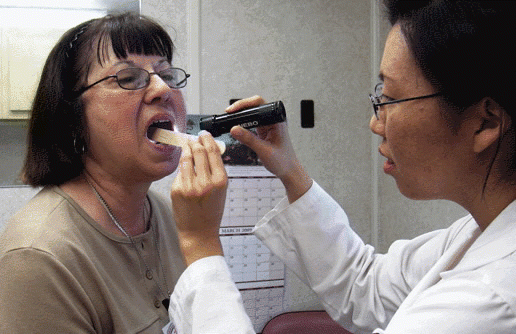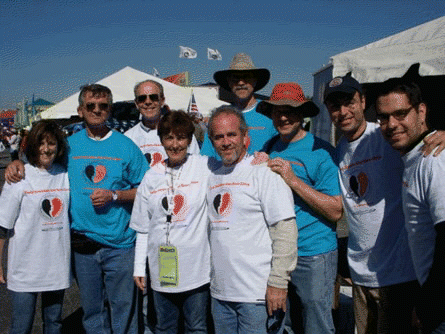
Explore This Issue
August 2009Fortunately, otolaryngologists are developing creative ways to reach at-risk populations before signs of the disease develop, said Dr. Johns.
Targeting Tobacco Users
For example, in 2006, Edie Hapner, PhD, Assistant Professor of Otolaryngology at Emory University and Director of Speech-Language Pathology at the Emory Voice Center, developed a screening program held at a NASCAR race at Atlanta Motor Speedway.
Screening organizers targeted NASCAR because the event traditionally attracts a white, rural population that tends to be more prone to tobacco and alcohol use, said Dr. Johns, adding that sponsor tents often used to include tobacco products.
The event was established through the efforts of the Atlanta Chapter of the Head and Neck Cancer Alliance, which at the time was still the Yul Brynner Head and Neck Cancer Foundation. However, the screening program is made possible each race weekend through the generosity of hundreds of volunteers, Emory University’s Department of Otolaryngology, and Atlanta Motor Speedway, which provides free vendor space, electricity, and tenting in the parking lot to hold the screening, said Dr. Hapner.

We would do screening in our office or at the mall for free to reach out to the community, but we weren’t getting to the masses, said Dr. Hapner. So we took the concept of free screening to the racetrack.
Organizing a private comprehensive head and neck screening in middle of a parking lot is a huge undertaking, Dr. Hapner added. However, she has the help of 60 to 65 volunteers each race day, including physicians, nurses, speech pathologists, and graduate and medical students.
Survivors of head and neck cancer also help by encouraging people milling outside the screening station to come in for an exam, said Dr. Hapner. I hear so many people say, ‘I know I must have cancer, but I don’t want to find out and ruin the race,’ she said.
Physicians provide comprehensive oral, head and neck cancer screenings to about 200 people a day over the two-day NASCAR event. Supplies includes disposable laryngeal mirrors and tongue depressors. You don’t want anything that needs to be disinfected, explained Dr. Hapner. Grant funding has also allowed Dr. Hapner to buy physician headlamps and otoscopes.
Leave a Reply